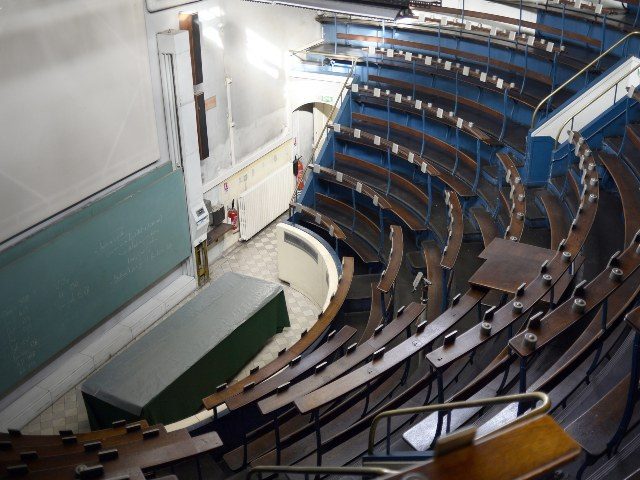The Foundation for Individual Rights in Education (FIRE) says that censorship at U.S. colleges and universities has increased during the coronavirus pandemic, as students transferred from the classroom to Zoom.
“As the pandemic cleared out campuses and quieted once-bustling classrooms, experts at the Foundation for Individual Rights in Education expected censorship to take a backseat to the health crisis,” said FIRE in a statement to Breitbart News.
“But as cases of COVID-19 took off, so too did case submissions from students and faculty nationwide alleging rights violations,” the organization added.
The report from FIRE reveals that censorship had spread during the pandemic and that tools like Zoom had actually aided in the silencing of dissenting student voices in the classroom.
“COVID-19 forced education online — and introduced new challenges to free expression,” said FIRE Director of Targeted Advocacy Sarah McLaughlin. “When we outsource classrooms to internet services like Zoom, we must be prepared for the possibility that they may import censorship.”
FIRE says that colleges have been abusing their authority in three principal ways:
Issuing unconstitutional gag orders to silence criticism of institutions, including forbidding resident assistants from speaking openly about their safety concerns when they felt institutional policies put their health at risk.
Censoring speech related directly to COVID-19, including forbidding faculty doctors fighting the pandemic from speaking to the media.
Applying campus measures in the name of public health that threaten individual rights, including tracking attendees of private meetings, forcing students to agree to public health pledges, and blaming the pandemic for censorship of unrelated speech, including — puzzlingly — a virtual play about a gay Charlie Brown.
“One clear lesson from the pandemic is that censorship can have a serious negative impact on public health,” said McLaughlin. “COVID-19 requires extensive and, in some cases, unprecedented measures to protect public health. Censorship isn’t one of them.”
You can follow Alana Mastrangelo on Facebook and Twitter at @ARmastrangelo, and on Instagram.

COMMENTS
Please let us know if you're having issues with commenting.